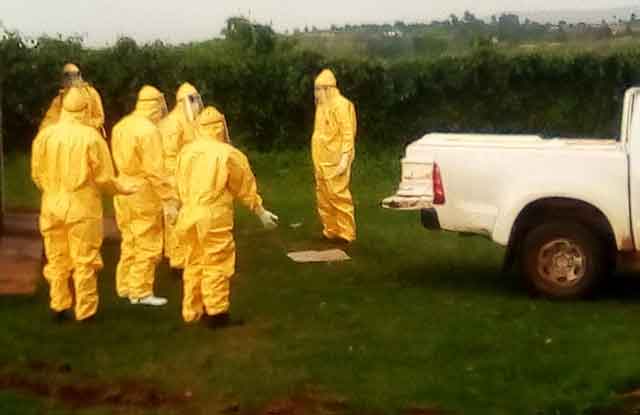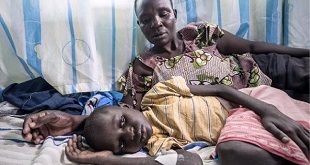
Mbale, Uganda | THE INDEPENDENT | Regional Referral Hospitals across the country are struggling to manage surging COVID-19 cases without ample space in the wards and lack of Personal Protective equipment for health workers.
Uganda has far registered 8,017 COVID-19 cases and 75 deaths. Majority of these were recorded in the months after the partial lifting of the lockdown, a sizeable number of them reported amongst health workers, who are said to be operating in risky situations, without the required protective gear.
Medical personnel need to be equipped with N95 masks, surgical masks, and face shields, gowns and gloves among others, before caring for COVID-19 suspects and confirmed cases. But many of them have reported a shortage of both personal effects and protective equipment amidst the dire need.
Mbale Regional Hospital which oversees 16 districts within the regions of Bukedi, Bugisu and Sebei has often decried the lack of space to accommodate the growing number of patients in the region. The Hospital had gazzeted its 11-bed capacity Outpatient Department to take care of COVID patients. But, as the numbers swelled the isolation facility was shifted to the mental health unit, which accommodates up to 50 patients.
However, this is no longer enough as the numbers swell within the region. Now the Hospital administrators have erected a tent outside the main facility to serve as an isolation unit for the patients. Dr Emmanuel Tugaineyo, the Director of Mbale Regional Referral Hospital says that they are now overwhelmed and need to be supported with PPE.
He says that Mbale Regional Hospital has cumulatively hosted over 300 patients which makes it one of the hospitals that have hosted the biggest number of Covid19 patients. He attributed the increasing cases to the political atmosphere in the country and the Kadodi culture in the Bugisu sub-region. The region has so far lost four health workers to COVID-19.
Mbale Region COVID-19 Surveillance Officer Edward Nyongesa told URN that severe shortages of testing supplies and delays in returning results have limited the hospitals’ ability to monitor the health of patients and staff. He said that they are unable to keep up with COVID-19 testing demands because they lack complete testing kits needed to complete tests especially among contacts of the patients.
“When patients stay longer while waiting for test results, this strains bed availability, personal protective equipment supplies, and staffing,” he said, adding that widespread shortages of PPE across the region have put staff and patients at risk. So far, over 50 health workers have tested positive in the region.
Nyongesa says that since the numbers of COVID-19 have increased in the region, the 50-bed capacity isolation unit is now full and that they can no longer admit any more patients adding that the patients are now being referred to Mulago National Referral Hospital or Nambole.
Entebbe Regional Referral Hospital currently has more than 150 COVID-19 patients and 30 suspects. Eight of the patients are admitted to the Intensive Care Unit.
Muhammad Mubiru, the Principal Administrator of the Hospital says that the surging number of COVID-19 cases is piling pressure on the limited space at the hospital. The facility has a capacity of 200 hospital beds, and 13 ICU beds, but does not have an oxygen plant.
Soroti Referral Hospital management and the district task force have now erected tents at Soroti grounds for admission of the overwhelming numbers of the COVID-19 cases. Stephen Ekoom, the Resident District Commissioner of Soroti district says that the facilities have been stretched to accommodate new cases of COVID-19.
“The Hospital has so far admitted 70 cases, so as a task force we have resolved to use the sports facilities to raise tents and manage the patients. Testing challenges hampered our efforts to reduce community spread, protect staff, and care for patients,” he said.
********
URN
 The Independent Uganda: You get the Truth we Pay the Price
The Independent Uganda: You get the Truth we Pay the Price


